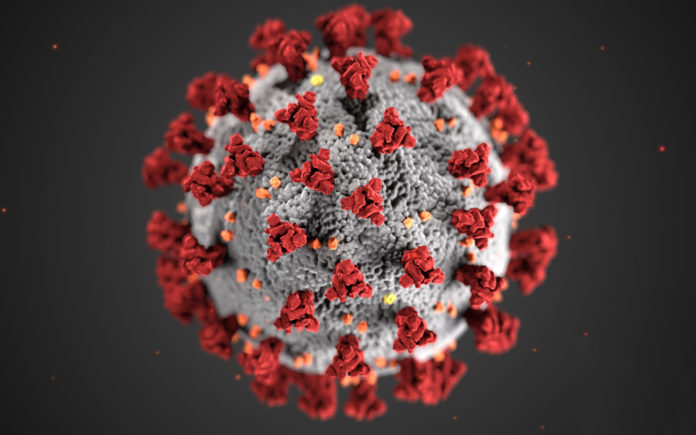Growing strain on the health care system has triggered a stricter stay-at-home order for Santa Cruz County and the rest of the Bay Area region identified in Gov. Gavin Newsom’s recently issued regional order.
Intensive care unit (ICU) capacity in the Bay Area region, which includes Santa Cruz County, fell to 12.9% Wednesday, according to the state, triggering more stringent restrictions for businesses amid the ongoing Covid-19 pandemic. Outdoor dining and other services will be forbidden, and retail businesses will be reduced to 20% capacity.
The Regional Stay-at-Home order will begin Thursday at 11:59pm. It will remain in effect for at least three weeks.
“With our case counts at an all-time high and headed higher due to the Thanksgiving surge, our hospitals and health care delivery system are at the breaking point,” Santa Cruz County Health Officer Dr. Gail Newel said in a press release. “We urge all residents to adhere to state guidelines as closely as possible to minimize the spread of COVID-19 and help reduce impacts to our most vulnerable residents. Our actions now will help us return to our normal lives sooner rather than later.”
The state implemented the restrictions, Newsom said, because ICU bed capacity has been falling across the state as more Californians test positive for Covid-19.
There are 54 people in Santa Cruz County hospitals with Covid-19, with 10 people in the ICU, according to state data. That leaves two ICU beds available in the county.
Sixty-four Santa Cruz County residents have died from Covid-19 directly or with the disease as a contributing cause.
What does the order mean?
Under the order, the following sectors are allowed to remain open with safety precautions:
- Critical infrastructure (when remote option is not possible)
- Schools
- Non-urgent medical and dental care
- Child care and pre-K
The following sectors will have additional modifications in addition to 100% masking and physical distancing:
- Outdoor recreational facilities: Allow outdoor operation only for the purpose of facilitating physically distanced personal health and wellness through outdoor exercise, without any food, drink or alcohol sales. Additionally, overnight stays at campgrounds will not be permitted.
- Retail: Allow indoor operation at 20% capacity, and 35% of capacity for standalone grocery stores, with entrance metering and no eating or drinking in the stores. Additionally, special hours should be instituted for seniors and others with chronic conditions or compromised immune systems.
- Shopping centers: Allow indoor access at 20% capacity with entrance metering and no eating or drinking in the stores. Additionally, special hours should be instituted for seniors and others with chronic conditions or compromised immune systems.
- Hotels and lodging: Allow for Covid-19 mitigation and containment measures, treatment measures, provide accommodation for essential workers, or providing housing solutions, including measures to protect homeless populations.
- Restaurants: Allow only for take out or delivery.
- Offices: Allow remote only except for critical infrastructure sectors where remote working is not possible.
- Places of worship and political expression: Allow outdoor activities only.
- Entertainment production: Industries, studios, and other related establishments such as establishments that provide content for professional broadcast can operate without live audiences.
- Coffee Shops: Considered restaurants and may open for take-out and delivery only.
- Youth sports: May operate outdoors only with restrictions.
- Farmers markets: May remain open with modifications.
- Gyms, group exercise and personal trainers: May offer outdoor services only with precautions.
- Libraries: Considered retail and should follow capacity limits.
- Pet grooming: Considered a limited service and must close.
- Residential and janitorial cleaning services: May remain open.
- Funeral Homes: Considered critical infrastructure and can remain open.
- Massage therapy: Must close unless client has a valid prescription.
- Real estate: May offer in-person showings to individual prospective buyers only. Open houses not allowed.
What must close?
In any region that triggers a Regional Stay Home Order because it drops below 15% ICU capacity all operations in the following sectors must be closed (except to the extent that their operations fall within critical infrastructure):
- Hair salons and barbershops
- Personal care services
- Museums, zoos, and aquariums
- Movie theaters (except drive-in)
- Wineries, bars, breweries, and distilleries (with exception for production, manufacturing, distribution, and retail sale for off-site consumption)
- Family entertainment centers
- Cardrooms and satellite wagering
- Limited services
- Live audience sports
- Amusement parks
This story will be updated










